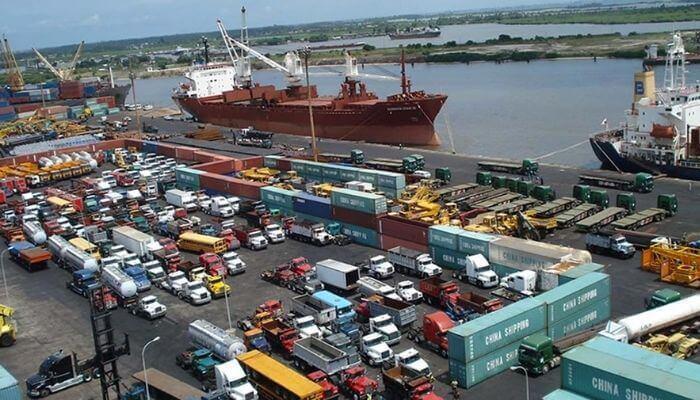The Nigerian Ports Authority (NPA) has announced a $1 billion reconstruction plan for Tincan Island, Apapa, Rivers, Onne, Warri, and Calabar port complexes.
The NPA also allocated funds for similar reconstruction as part of the new port development plan for the Badagry deep seaport, Snake Island, Burutu, and Ondo deep seaports.
The plans were disclosed on Wednesday, in a document titled ‘Consolidation of Superior Performance at the Nigerian Ports Authority 2023 — A Synopsis of the Authority’s Performance Improvement 2022-2023’.
On September 4, 2023, Adegboyega Oyetola, minister of marine and blue economy, had said terminal operators would be engaged in the reconstruction of ports, as they are “almost collapsing”.
Oyetola said he was deeply concerned about the deplorable condition of infrastructure at the ports.
Speaking further about plans for the country’s ports, the NPA, in the document, said it has implemented the port community system (PCS) and the national single window to improve their competitiveness.
The NPA also said despite global economic challenges in 2023, Mohammed Koko, its managing director, succeeded in elevating Nigeria’s primary trade facilitation platform to exceed its exceptional performance in 2022.
The agency said implementing measures to improve performance led to record-breaking revenue generation and remittances to the consolidated revenue fund (CRF) of the federation, with revenues increasing steadily from N361 billion in 2022 to N501 billion by December 2023.
In addition, the port authority said it will turn its strategic goal of becoming the leading maritime logistics hub for sustainable port services in Africa into a reality.
NPA BOOSTS NIGERIA’S TRADE BALANCE
According to the document, the NPA contributed to boosting Nigeria’s trade balance by promoting non-oil exports, particularly in response to the national need to strengthen the naira.
“This move which provided a one-stop shop for export processing where quality control, cargo assessment and statutory checks by all government agencies were carried out was geared towards eliminating all bureaucracy and attendant delays that hitherto undermined the competitiveness of Nigerian Exports in the International marketplace.
“The resultant effect of this initiative, was a quantum leap in the numbers of Nigerian export-laden containers from One Hundred and Fifty-Six Thousand, Seven Hundred and Ninety (156,790) Twenty Foot Equivalent Units (TEUs) in 2022, to Two Hundred and Twenty-Six Thousand, Four Hundred and Fifty-Six (226,456) TEUs in 2023.”
“Movement of cargo by barge has greatly enhanced port-hinterland connectivity as evidenced by the meteoric rise in numbers from a total of 80,244 TEUs in 2022, which by 2023 had grown to 118,046 TEUs,” the document reads.
“The NPA during the period under review licensed ten (10) Export Processing Terminals to facilitate exports at Nigerian Sea Ports.
The NPA said it has also increased the number of ship visits due to ongoing dredging of channels, installation of buoys, and enhanced security in the ports’ channels.
This, the agency said, represented a swift action that signifies NPA’s readiness to meet the maritime demands of Nigeria’s landlocked neighbouring countries and regain cargo previously lost to neighbouring maritime nations.
“The quantity of ship visits increased from 1,997 vessels in 2022 to 2,179 vessels by the end of 2023,” the NPA said.
“The Lekki deep seaport, Nigeria’s inaugural fully automated port upon commencement, handled 6,076 TEUs of transhipment cargo.”
The port authority also said revenue performance was maintained during the review period by diversifying beyond relying solely on earnings from core port operations.
NPA INITIATES PPP ARRANGEMENTS TO GENERATE REVENUE
NPA also said public-private partnership (PPP) arrangements have been initiated to generate revenue from various sources, such as ports’ independent power production, bunkering stations, logistics on fallow lands, freshwater provision, ship repairs, and maintenance.
This, according to the body, aims to safeguard its income against losses and upgrade its revenue invoice management system (RIMs) to the advanced version known as RIMs 2.0.
Source- The Cable Newspaper.

